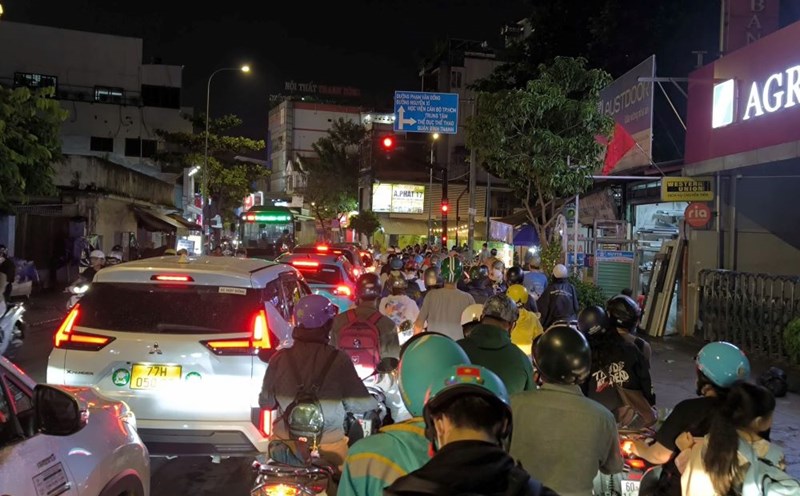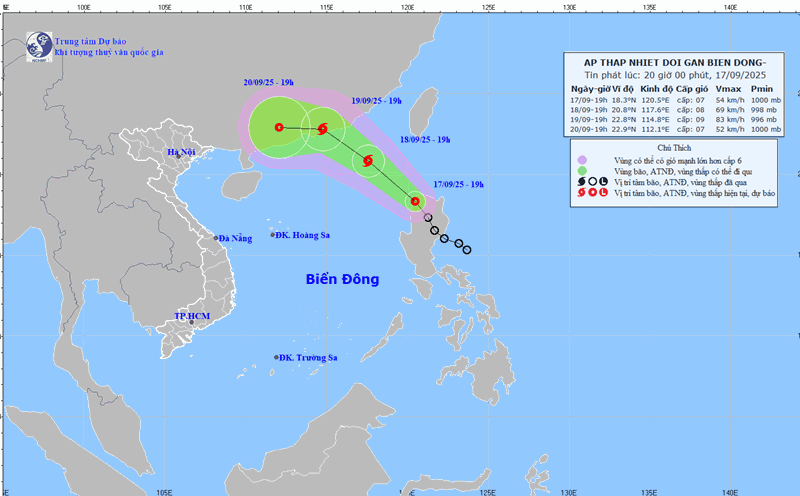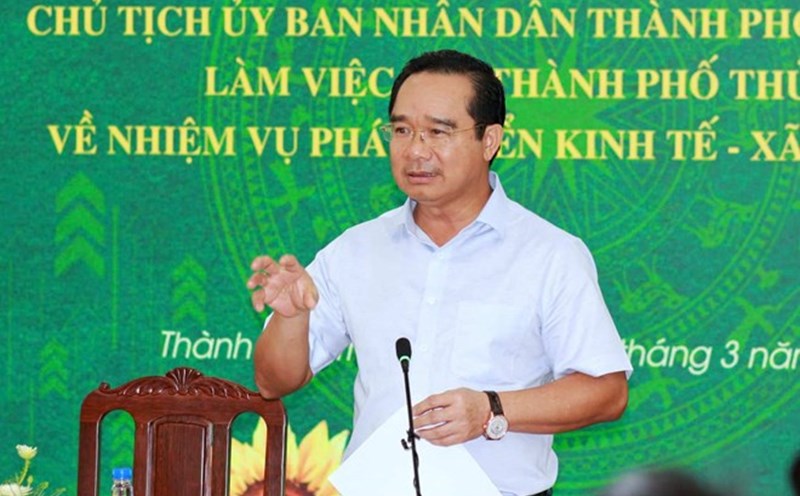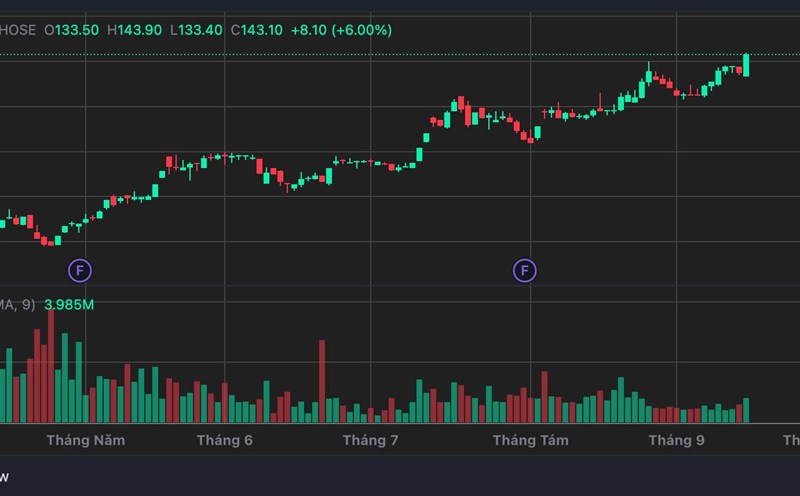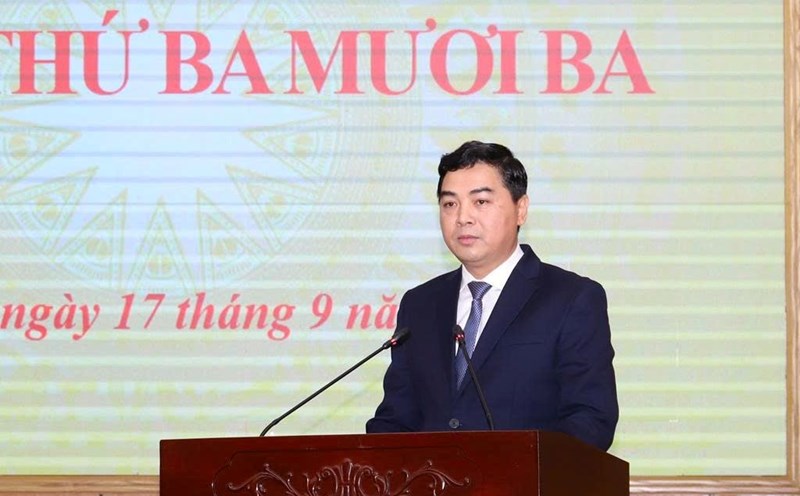Transfer from incentives to mandatory sanctions
Vietnam currently owns a fairly comprehensive system of regulations and policies on energy saving, to meet the needs of sustainable economic development and international commitments on emission reduction.
The 2025 amended Law on Energy Efficiency and Savings (Law No. 77/2025/QH15), effective from January 1, 2026, is a core document, adding new concepts such as high energy efficiency, energy service organization and energy efficiency contracts.
In addition, the National Energy Saving and Efficient Use Program (VNEEP3) for the period 2019-2030 aims to save 7-10% of total national energy consumption by 2030, focusing on industry - a sector that accounts for more than 50% of consumption.
Other support policies include the 2025 Power Savings Handbook of the Ministry of Industry and Trade, providing practical solutions for families, offices and industry, contributing to propaganda and cost reduction.
In an interview with Lao Dong, Dr. Nguyen Xuan Quang - Institute of Energy Technology (Hanoi University of Science and Technology) assessed that these policies demonstrate a breakthrough, with decentralization of responsibility to localities, preferential loans, land and technology, promoting green transformation and energy security.
However, challenges still exist when the potential for savings is still large (20-30% in industry), but implementation is not uniform due to lack of human resources, incomplete market mechanisms and financial barriers for small businesses Dr. Nguyen Xuan Quang emphasized.
Dr. Nguyen Xuan Quang said that Vietnam needs to shift from incentive policies to mandatory regulations and sanctions, especially in the context of rapidly increasing energy consumption and increasing environmental pressure.
The revised Law on Energy Efficiency and Savings 2025 has laid the foundation for requirements such as energy labeling and periodic energy audits, but still lacks strong enough sanctions to ensure implementation. Instead of encouraging voluntary use, it is necessary to apply mandatory regulations such as minimum energy performance standards (MEPS) to all equipment and means of energy consumption in industry, construction and transportation. For example, industrial plants consuming over 200 TOE/year must comply with specific energy norms, with heavy fines if violated, instead of only recommending optimization Dr. Nguyen Xuan Quang recommended.
Proposing additional solutions, Dr. Nguyen Xuan Quang emphasized that it is necessary to establish financial sanctions, such as carbon tax or high emissions fees for businesses using inefficient energy, and require transparent annual reporting on energy consumption.
These measures will create legal pressure, encourage businesses to invest in green technology and raise public awareness. However, to avoid causing difficulties for small businesses, it is necessary to combine financial support and training policies, said Dr. Nguyen Xuan Quang.
Energy audit - the "backbone" of market discipline
Proposing solutions to promote energy saving and efficiency, Associate Professor, Dr. Ngo Tri Long - an economic expert, said that energy monitoring & auditing will be the "backbone" of market discipline.
"It is necessary to clarify the subjects and obligations and have mandatory sanctions for key energy consuming facilities (CSNLTD). Employment insurance is an industrial/transport facility that consumes ≥1,000 TOE/year; the construction block (office, hospital, school, hotel, shopping mall...) consumes ≥500 TOE/year.
Facilities must develop a 5-year plan, annual report and periodically audit energy every 3 years according to Circular 25/2020/BCT. It is necessary to increase the fine for late/no reporting, failure to conduct audits; publicize the names of violating units similar to the current method of publicizing the list of employees to create social pressure.
Discipline the market, which proposes to include energy efficiency criteria (EUI, % savings/year, ISO 5,0001/EnMS) in the risk scale when rating credit; comply well with businesses with accumulated credit points/interest rate reduction. Legal basis: Circular 17/2022/TT-NHNN requires banks to manage environmental risks in credit granting; The issued National Green Taxonomy (July 2025) allows the standardization of green capital flows.
Compulsory technology standards & eliminate ineffective equipment
On May 24, 2023, the Prime Minister signed Decision No. 14/2023/QD-TTg (abbreviated as Decision No. 14) promulgating the List and roadmap for low-performance energy-using vehicles and equipment to be eliminated and low-performance generators not to be rebuilt, effective from July 15, 2023.
Associate Professor. Dr. Ngo Tri Long said that it is necessary to increase the frequency of post-inspections, border control and e-commerce, avoiding "squeezing" ineffective goods. The milestone of 2027 - closing the technology gap recommends expanding the portfolio and raising the minimum energy efficiency level according to the 2-3 year cycle; completing the lighting conversion to remove fluorescent before 2027, following international practices (Japan plans to end fluorescent light circulation from 2027). Synchronize standards - continue to update national standards on performance and labeling; randomly check after customs clearance - at retail warehouses/canals; severely punish fraud against labeling.
According to Associate Professor. Dr. Ngo Tri Long, another content that needs to be focused on is - green credit. This is a runway to prioritize low interest rates for energy-saving projects with audited/EnMS. The VSUEE Guarantee - Risk Sharing Mechanism (World Bank/GCF) has operated the Risk Sharing Facility mechanism through SHB, ready to guarantee commercial loans for EE projects of enterprises/ UNESCO - helping to reduce the requirement for collateral assets, extend the term. Enterprises need to "package" the project according to VSUEE's technical - financial criteria to access capital.
Experts recommend implementing tax incentives - quick deduction at the policy level, allowing quick deduction/super deduction of investment costs EE; piloting green bonds with carbon credits for projects with clear reports and assessments to reduce capital costs.



